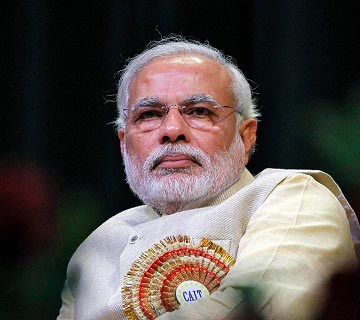
Rasa News Agency reports - “I’m inclined to support Mr. Modi,” Salim Shah, a Muslim who cooks eggs and chicken rolls in an Indian street, told New York Times on Tuesday, March 4.
“It looks like he’s going to win, and why waste your vote by voting for someone who is not going to win?”
In a few weeks, India will be in the middle of an energetic election campaign that takes place over a number of weeks.
Going up dramatically by almost a hundred million since 2009, 815 million voters are eligible to vote to elect 543 lawmakers.
At the heart of the campaign, Modi has achieved remarkable progress becoming the nation’s most popular politician.
Yet, the popularity might not be enough for him to win because political power in India is split among a vast collection of regional parties on one hand, and Muslim bad memories with the former chief minister of Gujarat State in 2002.
Tensions between Muslims and the Hindu nationalist dates back to 2002 massacre of Muslims in the state.
More than 2,000 Muslims were hacked and burnt to death in Gujarat in 2002 by Hindu mobs after Hindu pilgrims died in a train fire first blamed on Muslims but which a later inquiry concluded was accidental.
Several investigations at the state and federal levels accused police of failing to protect Muslims under orders from state premier Modi and his aides, fanning one of the worst instances of sectarian violence in India.
Reports that linked Modi with a police assassination squad that mostly targeted Muslims made it harder for Muslims to forget. “Modi survives on hatred,” Shakeel Ahmad, chairman of the Islamic Relief Committee of Gujarat, said in an interview last year. At the last stop in his election train, Modi stopped by Lucknow, the capital of Uttar Pradesh, trying to lure a huge Muslim population to support his candidacy.
“Modi’s campaign has been strikingly devoid of anti-Muslim rhetoric,” Ashutosh Varshney, a professor of international studies at Brown University, wrote in an emailed response to questions.
“Whether that is a sign of ideological evolution remains unclear, but at the very least it is part of a considered strategic decision.”
During the rally, Modi claimed that his party supports secularism, in a bid to draw Muslims’ who have long supported secular Indian National Congress. “For the B.J.P.,” Modi said of his party, “secularism is an article of faith. It is to unite people and bring development.”
Yet, the tactic did not convince many Muslims.
“This is an election tactic,” saidSyed Husain Afsar, editor of a Muslim-oriented news website in Lucknow, adding that few Muslims in Uttar Pradesh would vote for Modi.
“Everyone knows he’s not secular.”
After hours of rally, in which Modi addressed a sea of mostly male party enthusiasts clad in orange, a color associated with Hinduism, few Muslims changed their opinion about him.
“But I think being a good human being is far more important than being a good leader,” Mohammad Jaffar Ali, a 27-year-old stockbroker who lives in a Muslim enclave in Lucknow, said.
“I’m not voting for him.”
Mohammad Shakeel, 44, who supported Congress in the past said he will vote this time for a regional party.
“There’s some concern, even some fear, about what Mr. Modi will do to Muslims if he becomes prime minister,” Shakeel said.
“We don’t forget.”